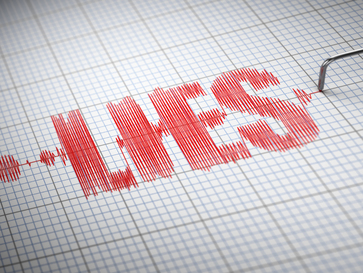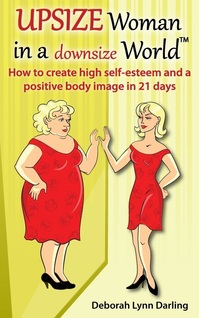Last month I wrote my newsletter article on “lying”. In this week’s blog post, I want to answer the number one question many of you asked of me —“once you know someone is lying how do you confront them?” In this article we are going to deal with occasional liars and white liars. We are not going to deal with pathological or sociopathic liars. They need professional help because lying is practically an essential part of their personality.
Before we discuss the answer to your question, you need to know that you do not hold the power to change someone else’s behavior. You can however set up some pretty clear boundaries that hopefully lead the liar to make different choices where you are concerned. Here are some factors you should look at first:
Before we discuss the answer to your question, you need to know that you do not hold the power to change someone else’s behavior. You can however set up some pretty clear boundaries that hopefully lead the liar to make different choices where you are concerned. Here are some factors you should look at first:
Recognize when the person is lying—to do this you need to establish a baseline of fact versus fiction. Once you have the baseline for fact you can decipher the lying through their body language, higher pitched voice, face touching, fidgeting, a fake smile (one that does not engage the eye muscles), dilated pupils, slower blinking patterns, incongruence of words and gestures to name a few. Despite what you may have heard, liars often make better eye contact than truthful people. They over-exaggerate the eye contact to come across as being truthful.
Recognize what the person lies about—do they just lie over certain topics that they may be embarrassed about or that are extremely personal or do they seem to lie all the time. In the one instance what you’re asking may be none of your business anyway and you should cease probing. On the other hand if they lie all the time you may have a compulsive liar and unless you have mental health training you may want to stay clear of this since compulsive lying is really an addiction.
Determine the level of severity of the lie—does the lie protect the liar? Is he or she lying to save someone’s feelings such as telling someone they look good in an outfit when it really accentuates every flaw. Is he or she lying to cover bad behavior such as stealing or not doing the work. Is it used to manipulate a situation or other people? Are other people making decisions based upon the lie? If so this is definitely a lie that needs to be addressed.
Once you have determined the three areas above you need to first decide if the lie is one you need to address or not. Sociologist Gini Graham Scott suggests your decision to confront the liar should depend upon both your relationship to the liar and the type of lie. Robert Feldman, author and professor of psychology at the University of Massachusetts Amherst states that “when you ignore a lie, in a sense, you become a liar yourself”. Once you establish if the lie is one you need to address begin to document it. Write down in detail what happened and why you believe it is a lie. Make sure you do a lot of research and have as much evidence as you can get to back up your assumptions. Do not just confront the person on your feelings alone.
Talk with the individual who you believe is lying in person. Don’t call them out in public initially and don’t call them a liar. Accusing someone of lying puts them on the defensive. Lying is often used to cover up a mistake. When deception is uncovered it is not just the deception that needs to be dealt with but the issue that caused the deception as well. Incidentally it may be wiser to deal with the underlying cause than the deception. In this way you may stop the lies altogether. But in any case start with an indirect, tactful and diplomatic approach first.
Let them know that you know the truth and that you question what they said. You are trying to decipher whether or not they may have been confused or if it could be a misunderstanding. Give them a chance to respond and explain themselves. If they are white liars or occasional liars they may be so embarrassed that just calling them on it may be enough to stop the behavior. If they continue to lie, let them know that you do not believe them and as a result they have broken their trust with you.
If they become defensive it is time to bring out your evidence. At this point they will either become very quiet because they know they have been caught, they will apologize or they will continue to lie. If they continue to lie you may have a compulsive/pathological liar in your midst and this is an addiction problem. Don’t continue. You’re not going to change them.
Let the person know that the next time they lie you will call them out in public. Let them know that this kind of behavior—lying—will not be tolerated. Listen intently to the liar. Liars usually repeat their stories and if you listen carefully they have a lot of inconsistencies that you can call them up on. This will get them flustered.
Put yourself in the other person’s shoes. Ask yourself why they may be lying? Do they need attention or do they have a problem they are not open to confronting. Make sure when you are dealing with a liar that you are always telling the truth and not exaggerating from your end as well. Focus on how the lie (not the liar) has created a betrayal of trust in your relationship or in his or her job etc.
Don’t start a fight with the liar. This will only make things worse and make you look bad. If the liar has been telling lies about you getting angry and lashing out will only play into the liar’s desired outcome. One last thing, consider having a third party present during your communication with the liar to document what actually transpired. If the liar has said that other people have made claims against you, make sure you have all the people present in the room. In this way you can really see if the liar is working alone or with accomplices.
You can deal with liars by using the following guidelines:
Lying can really take a toll on the person or persons being lied to and the person who is lying. If you find yourself in a relationship of any kind with a liar make sure you set very clear boundaries. Compulsive liars can destroy their credibility, lose their jobs and friends but that is the choice they make from lying. Don’t let them destroy your credibility or lose you your job and friends because you put up with their lies. That will be a choice you make—and a very irresponsible one at that.
I hope this answered your question and as always, I look forward to hearing from you.
Debbie Darling, ©2015 The Presentation Pros
Read more of The Presentation Pros blog HERE.
Recognize what the person lies about—do they just lie over certain topics that they may be embarrassed about or that are extremely personal or do they seem to lie all the time. In the one instance what you’re asking may be none of your business anyway and you should cease probing. On the other hand if they lie all the time you may have a compulsive liar and unless you have mental health training you may want to stay clear of this since compulsive lying is really an addiction.
Determine the level of severity of the lie—does the lie protect the liar? Is he or she lying to save someone’s feelings such as telling someone they look good in an outfit when it really accentuates every flaw. Is he or she lying to cover bad behavior such as stealing or not doing the work. Is it used to manipulate a situation or other people? Are other people making decisions based upon the lie? If so this is definitely a lie that needs to be addressed.
Once you have determined the three areas above you need to first decide if the lie is one you need to address or not. Sociologist Gini Graham Scott suggests your decision to confront the liar should depend upon both your relationship to the liar and the type of lie. Robert Feldman, author and professor of psychology at the University of Massachusetts Amherst states that “when you ignore a lie, in a sense, you become a liar yourself”. Once you establish if the lie is one you need to address begin to document it. Write down in detail what happened and why you believe it is a lie. Make sure you do a lot of research and have as much evidence as you can get to back up your assumptions. Do not just confront the person on your feelings alone.
Talk with the individual who you believe is lying in person. Don’t call them out in public initially and don’t call them a liar. Accusing someone of lying puts them on the defensive. Lying is often used to cover up a mistake. When deception is uncovered it is not just the deception that needs to be dealt with but the issue that caused the deception as well. Incidentally it may be wiser to deal with the underlying cause than the deception. In this way you may stop the lies altogether. But in any case start with an indirect, tactful and diplomatic approach first.
Let them know that you know the truth and that you question what they said. You are trying to decipher whether or not they may have been confused or if it could be a misunderstanding. Give them a chance to respond and explain themselves. If they are white liars or occasional liars they may be so embarrassed that just calling them on it may be enough to stop the behavior. If they continue to lie, let them know that you do not believe them and as a result they have broken their trust with you.
If they become defensive it is time to bring out your evidence. At this point they will either become very quiet because they know they have been caught, they will apologize or they will continue to lie. If they continue to lie you may have a compulsive/pathological liar in your midst and this is an addiction problem. Don’t continue. You’re not going to change them.
Let the person know that the next time they lie you will call them out in public. Let them know that this kind of behavior—lying—will not be tolerated. Listen intently to the liar. Liars usually repeat their stories and if you listen carefully they have a lot of inconsistencies that you can call them up on. This will get them flustered.
Put yourself in the other person’s shoes. Ask yourself why they may be lying? Do they need attention or do they have a problem they are not open to confronting. Make sure when you are dealing with a liar that you are always telling the truth and not exaggerating from your end as well. Focus on how the lie (not the liar) has created a betrayal of trust in your relationship or in his or her job etc.
Don’t start a fight with the liar. This will only make things worse and make you look bad. If the liar has been telling lies about you getting angry and lashing out will only play into the liar’s desired outcome. One last thing, consider having a third party present during your communication with the liar to document what actually transpired. If the liar has said that other people have made claims against you, make sure you have all the people present in the room. In this way you can really see if the liar is working alone or with accomplices.
You can deal with liars by using the following guidelines:
- Always begin with empathy. People are more likely to be candid with people who make an attempt to understand where they are coming from.
- Don’t ask a lot of questions. Questions put people on the defensive.
- Take a look to see if you have a part in the lie. Don’t punish someone for telling you the truth. This only serves to teach people they have to lie to you in order to protect themselves.
- If you have a compulsive liar, don’t talk to them alone. Make sure you have at least one witness that can corroborate what you heard.
- Only speak the truth to a liar but just because you are speaking the truth, doesn’t mean you have to say everything you are feeling.
- Phrase the problem around your feelings not the liar’s deception. i.e. “Something you said is upsetting to me. I’m concerned (sad, hurt, frustrated, etc.) about…and I want to talk with you about it.”
- Act quickly to expose the lie and the liar. The longer you let it go the less impact you have and the less likelihood you will be able to get the deception and the underlying cause out in the open.
- You can’t change the liar’s behavior but you can change how you react to it. Don’t set up expectations for them. The expectations are all yours. Again, you cannot change their behavior you can only change how you respond to it and what level of boundaries you will set around it.
Lying can really take a toll on the person or persons being lied to and the person who is lying. If you find yourself in a relationship of any kind with a liar make sure you set very clear boundaries. Compulsive liars can destroy their credibility, lose their jobs and friends but that is the choice they make from lying. Don’t let them destroy your credibility or lose you your job and friends because you put up with their lies. That will be a choice you make—and a very irresponsible one at that.
I hope this answered your question and as always, I look forward to hearing from you.
Debbie Darling, ©2015 The Presentation Pros
Read more of The Presentation Pros blog HERE.





